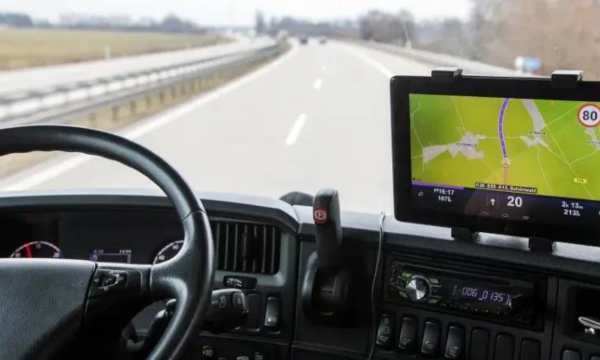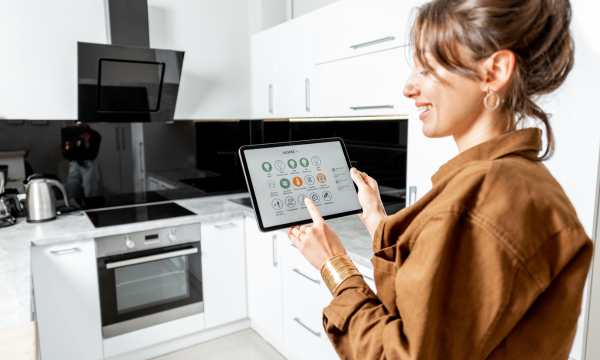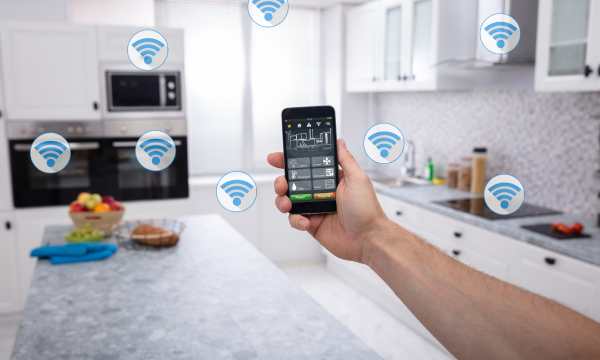Climate Comfort: Guide to Smart HVAC Systems
As the world grapples with the impacts of climate change, it is becoming increasingly clear that we need to make changes to our homes that are both energy-efficient and climate-friendly.
Ad
Smart HVAC systems (heating, ventilation, and air conditioning) have become a major player in this area. They not only provide comfort but also help protect the environment and save energy. This article discusses the features, benefits, and things to consider when purchasing a smart HVAC system. This is a complete guide for anyone looking to improve temperature control in their home.
Understanding Smart HVAC Systems: Beyond Temperature Control
Most traditional HVAC systems only regulate temperature, but smart HVAC systems do much more than that. These systems use advanced technology and connectivity to make the most of energy, improve air quality and give users more control over internal temperature and humidity. Smart HVAC equipment such as air purifiers, ventilation systems and smart thermostats work together to create a home that is both comfortable and environmentally friendly.
Ad
Smart Thermostats: Precision Control at Your Fingertips
A smart thermostat is the most important part of any smart HVAC system. You can use these devices to fine-tune the temperature in your home, or you can set them to change settings based on your schedule, the number of people in your home, or even the weather forecast. Smart thermostats can be controlled remotely via an app on your phone, so you can change the temperature in your home anywhere. Some models also use machine learning algorithms that change over time based on your tastes, giving you maximum comfort and energy efficiency.
Energy Efficiency: A Key Advantage of Smart HVAC Systems
One of the benefits of smart HVAC systems is that they are designed to use less energy. These systems are designed to make heating and cooling work better, which means they use less energy and lower electric bills. For example, a smart heater can learn your daily habits and adjust the temperature settings accordingly. This means no extra energy is consumed when the home is empty. Focusing on efficiency not only saves people money, it also helps them live more environmentally friendly and sustainable lives.
Ventilation Systems: Improving Indoor Air
Controlling temperatures is important, but so is indoor air quality. With smart features, ventilation systems can regulate the flow of fresh air, so you always have clean, filtered air throughout your home. Some types include air quality sensors that can detect allergens and pollutants and adjust ventilation levels to eliminate them. This focus on indoor air quality is especially helpful for people with respiratory problems or allergens.
Integrate with the Smart Home Ecosystem: Connect Easily
Smart HVAC systems work seamlessly with other smart home devices, creating a collaborative work environment. When users are connected to platforms such as Google Home or Amazon Alexa, they can use voice commands to control the HVAC system. Additionally, connected devices such as smart blinds or windows can work with HVAC systems to take advantage of sunlight and weather conditions to save energy.
Remote Monitoring and Control: Ease of Use at Your Fingertips
One of the great things about smart technology is that it allows you to inspect and work on your HVAC system remotely. With a smartphone app, you can change the temperature, see how much energy you’re using and receive alerts or messages if there’s a problem with your system, whether you’re at work or on vacation. This ease of use not only puts people at ease but also gives them the information they need to make informed choices that save the most energy.
Adaptive Learning: Make Yourself Feel Relaxed
Adaptive learning algorithms are often used in smart HVAC systems to learn your tastes and make changes accordingly. For example, a smart thermostat can learn when you normally turn down the heating before going to bed and adjust the setting accordingly. This adaptive learning not only allows you to sit more comfortably, but also saves energy by anticipating and responding to your daily routine.
Smart Maintenance Alerts: Proactive System Maintenance
Smart devices often come with maintenance alerts that can help you keep your HVAC system in good working order and ensure it stays in top shape in the long run. These alerts let users know when it is time to replace the air filter, perform scheduled maintenance, or troubleshoot potential problems. Homeowners can prevent major problems, extend the life of their HVAC equipment, and keep it operating at a high level by meeting repair needs.
Things to Think About and Tips:
While there are many benefits to smart HVAC systems, here are a few things to consider and keep in mind:
- Compatibility: Make sure the smart HVAC parts you choose will work with your existing heating and cooling systems.
- Professional Installation: Some smart HVAC devices may need to be installed by a professional, especially if they need to be connected to your home’s current HVAC system.
- Security: As with any smart device, security should be your top priority. To reduce online security risks, change your default passwords, keep your software up to date, and only buy gadgets from reputable brands.
- Energy Savings: To take advantage of the energy-saving features of your smart HVAC system, set up routines and use the adaptive learning feature.
- Regular Maintenance: To ensure that your smart HVAC equipment is always in top condition and uses as little energy as possible, follow the maintenance schedule that comes with the equipment.
Conclusion:
If you want to feel comfortable in your home, smart HVAC systems have become a great help. These technologies, such as smart thermostats that give you precise control and ventilation systems that improve the air quality in your home, give you many ways to control the climate in your home. Smart HVAC systems not only make homes more comfortable, but also help people live in a greener way by focusing on energy efficiency, connecting to the smart home ecosystem and allowing you to remotely view and control operate. As technology continues to advance, the future of home climate control looks bright. It will empower people, make their lives easier and benefit the environment.
FAQs:
1. What is a smart HVAC system and how is it different from traditional heating and cooling systems?
Smart HVAC (heating, ventilation and air conditioning) systems go beyond traditional systems by integrating advanced technology and connectivity. Smart HVAC systems, such as those with smart thermostats and ventilation, provide precise temperature control, increase energy efficiency, and often aim to improve indoor air quality.
2. How do smart thermostats improve energy efficiency? Can they be controlled remotely?
Smart thermostats optimize energy efficiency by learning your habits and adjusting temperature settings accordingly. They can be programmed to operate on a schedule, adapt to changes in occupancy levels and even be controlled remotely via a smartphone app. This remote control function ensures that your home is comfortable and unnecessary energy consumption is minimized.
3. What role does indoor air quality play in smart HVAC systems? How can they improve it?
Smart HVAC systems prioritize indoor air quality by combining features such as ventilation systems and air quality sensors. These sensors detect pollutants and allergens, allowing the system to regulate the flow of fresh, filtered air. Attention to air quality is especially useful in creating a healthier living environment.
4. How can smart HVAC systems integrate with other smart home devices, and what are the benefits?
Smart HVAC systems are designed to integrate seamlessly with other smart home devices, creating a cohesive ecosystem. Integration with platforms such as Google Home or Amazon Alexa allows users to control their HVAC system using voice commands. This interconnected approach optimizes energy efficiency based on factors such as sunlight and external weather conditions.
5. What considerations should homeowners take into account when adopting smart HVAC systems? Are they compatible with existing systems?
Homeowners should consider the compatibility of smart HVAC components with existing heating and cooling systems. Some units may require professional installation, especially if they involve integration with the home’s existing HVAC infrastructure. Additionally, prioritizing safety, following recommended maintenance schedules, and taking advantage of energy-saving features are important considerations for optimal performance.
 How to Use a Truck GPS App on Android
How to Use a Truck GPS App on Android
Experience the freedom of smart routes and precise navigation with a truck GPS app on Android. Ad […]
More Innovations Unveiled: Overview of Smart Home Appliances
Innovations Unveiled: Overview of Smart Home Appliances
The rapid development of technology has changed our way of life. Ad One of the most exciting […]
More Seamless Living: Smart Home Systems Integration
Seamless Living: Smart Home Systems Integration
In today’s technologically advanced age, the concept of home living has transcended its usual limitations. Ad With […]
More